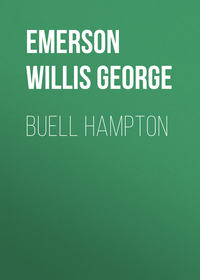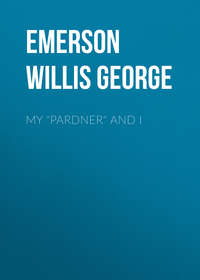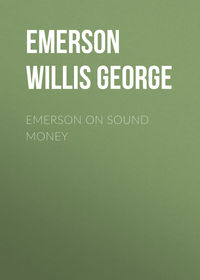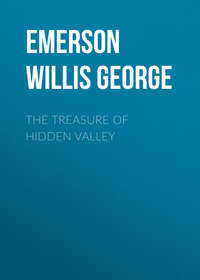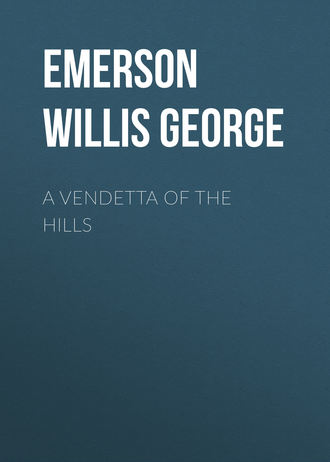 полная версия
полная версияA Vendetta of the Hills
“Well, you’ll say the same thing, Ches, my boy, when you see her.”
It was not yet four o’clock when they approached the Rancho La Siesta. The house was of a style quite unusual in California – a miniature castle that might have been planned by some European architect of renown. It stood amid noble oak trees, old and gnarled and of gigantic size, but not too numerous to hide the architectural features of the building. To the rear the trees grew more thickly till they finally merged into one great forest that covered the lower ridge of the mountain beyond. Far up, just within the timber line, could be seen the red-tiled roof of a house which Dick told his friend was the home of a Mr. Ricardo Robles. Beneath the forest, the gently undulating lands sloped away to a considerable stream that dashed down from one of the mountain canyons and debouched into the great valley.
“Whew!” exclaimed Munson admiringly, as they rode up and turned their horses over to an attendant. “Some swell architecture around here! Is this your work, Dick?”
“Oh, no!” replied Willoughby. “I had nothing to do with it. But I do like the architectural lines of Mrs. Darlington’s home. She’s English and has English tastes, and transplanted ideas are not always successful in a new country. But in this case the building just seems to fit the scenery. It has always delighted me.”
“It is certainly beautiful,” concurred Munson as they walked along a winding graveled pathway that climbed the gentle slope and led to the portico of the mansion.
Around them were gay beds of flowers dotting the greensward. Almost hiding the columns of the portico were climbing roses, one bush of the purest white, the other of deep crimson.
As they passed under the porch roof, a handsome and well-preserved lady of middle age appeared at the top of the steps with a welcoming smile. She descended to give them gracious greeting.
“How glad I am to see you, Mr. Willoughby. No one could be more welcome at La Siesta.”
“Thank you,” said Dick with marked chivalry.
“Mrs. Darlington, permit me to present my friend, Lieutenant Munson.”
The introduction over, they ascended the steps together, and passed into a spacious courtyard, with broad verandahs running all around and a fountain playing in the centre. The hostess conducted her visitors to a cosy corner, screened by glass panels from the open air and furnished with rich Persian rugs, divans, cushions, tapestries, carved ebony tabarets, all in oriental fashion. When they were comfortably settled, she opened the conversation.
“Lieutenant, the young ladies of La Siesta are most impatient to meet you. Mr. Willoughby has told us so much about you and yet has been so very dilatory – yes, really you have, Mr. Willoughby – in bringing you over, that we have put down several black marks against his name.”
“Oh, thank you,” stammered the young officer, reddening. “I quite agree with you about Willoughby, for I have been pleading with him to present me from the very first day of my arrival.” Turning to Mrs. Darlington, Dick laughingly protested: “My dear Mrs. Darlington, that is the first whopper you have heard from my esteemed friend. You have yet to learn that he always speaks in the superlative degree.”
At this moment Grace Darlington stepped through one of the French windows. As she stood hesitating for a moment, Chester Munson there and then agreed with all the preliminary praise Dick Willoughby had bestowed. She was certainly a vision of loveliness, with a wealth of golden hair and eyes of sapphire blue; petite, her figure plump but beautifully molded, her cheeks aglow with the red roses of health and youth and happiness.
“My daughter Grace,” announced Mrs. Darlington, rising and formally introducing the lieutenant to her as she joined the group.
Again Munson blushed and stammered. Dick was chuckling; he saw that the gallant son of battle, with a penchant for blonde beauties, had succumbed to the first glance from Grace Darlington’s eyes.
“Delighted to meet you, Lieutenant Munson,” she declared with frank friendliness as they shook hands.
“Where’s Merle?” asked Dick almost before Grace had time to turn to him.
“There now, Mr. Impatience,” she replied, shaking her finger teasingly at, him, “Merle will be here in her own good time. She’s busy with Bob just now.”
“Who the dickens is Bob?” asked Dick, visibly disconcerted.
“Oh, her new Irish terrier,” laughed Grace, her voice ringing with mischievous merriment. “And such a beauty!”
Dick breathed again. The lieutenant had recovered his composure; it was his turn now to bestow a sardonic smile upon his comrade.
“We’ll have afternoon tea,” suggested Mrs. Darlington. “And of course you two young men will stay for dinner.”
Both uttered a simultaneous protest – they were only in riding clothes. But Mrs. Darlington made short work of the argument, and touched a pushbutton by her side. A maid responded, the extra covers for dinner were ordered, and meanwhile tea was to be sent on to the verandah. Pleasant small talk succeeded, the lieutenant being called upon for his first impressions of California.
Of a sudden Grace exclaimed in a voice, half of joy, half of surprise:
“Why, here comes Mr. Robles!”
Advancing along the verandah, hat in hand, was a man of striking presence and dignity, perhaps fifty years of age. His jet black hair was streaked with gray, the full beard almost verging on whiteness. Olive complexion and brown eyes, together with the courtly manner of his salutation, indicated the thoroughbred Castilian.
He bowed and raised to his lips the hand of his hostess. To Grace he paid the same deference. Next he turned to Dick Willoughby and extended his hand.
“I have met Mr. Willoughby. I am pleased, sir, to see you again.”
Then his eyes rested on Lieutenant Munson, and Mrs. Darlington presented the young army officer.
“And where, I pray, is Miss Merle?” Mr. Robles finally asked, glancing around.
“That’s what I want to know,” blurted out Dick. Then he reddened just a little.
The older man looked kindly at Dick, and smilingly said: “The audacity of youth.”
“Yes,” put in Grace, “the audacity and the impatience as well.”
But just at that moment there floated from the recesses of the home the fragment of a song: “I dreamt I dwelt in marble halls, with vassals and serfs at my side.”
“Ah, here comes the recreant now,” exclaimed Mrs. Darlington.
The song stopped abruptly, and a moment later Merle Farnsworth appeared. She went first of all to Mr. Robles and greeted him warmly, giving him both her hands, which he kissed in his princely fashion. For Willoughby she had a pleasant smile, and for his friend, the lieutenant, a kindly welcome to California.
The tea tray had meanwhile arrived, and soon both the young ladies were busy attending to their guests. While he sipped his tea, Munson completed his inspection of Merle Farnsworth – dispassionately, for the brunette type of beauty had never yet made his pulses beat faster. But he could none the less admire. She was a stately girl, taller than Grace Darlington, with fine, regular features and brown eyes that matched the dark heavy braids of her hair. Her manner was alert and vivacious, yet there was the quiet dignity of gentle breeding even in her smile.
After half an hour of general conversation, Mr. Robles arose to take his leave, notwithstanding Mrs. Darlington’s pressing invitation that he should remain and join the dinner party.
“My home is not far away,” he said when shaking hands with Munson, “up in the woods yonder. Perhaps you may have seen it as you came along the road.”
“Yes,” observed Dick, “I pointed it out to the lieutenant.”
“Well, both you gentlemen are cordially invited to pay me a visit any time you are riding through this part of the country. Although I live far away from the busy world, and am a recluse by choice, I have some things that may interest you – pictures, old manuscripts and books of the Spanish days.”
“Pictures?” interposed Dick, inquiringly.
“Yes, a few that I picked up during several visits to Europe.”
“If people only knew it,” remarked Mrs. Darlington, “Mr. Robles has perhaps one of the finest private picture galleries in America.”
“Then I’m certainly coming to see you,” said Dick, eagerly.
“Me or my pictures?” asked Mr. Robles with a quizzical smile.
“Both,” and the young fellow showed he meant it by a cordial hand grip.
“You will pass our door, Mr. Willoughby?” exclaimed Merle in half-laughing reproachfulness. “You will dare to give the go-by to La Siesta?”
“Well, art is art,” replied Dick sturdily, although he did not trust himself to look at Merle while he answered.
“But perhaps the young ladies will show you the way through the oak forest,” suggested Mr. Robles.
“That would be great,” said Lieutenant Munson, with his eyes fixed on Grace Darlington.
“Delightful,” she blushingly assented.
“Well, arrange it among yourselves. For the present, adios.” And with a sweeping bow the senor took his departure.
A stroll through the gardens and orchards, dinner and sprightly conversation, an hour of piano-playing and singing to follow – altogether a delightful evening was spent. The nearly full moon had risen before the young men found themselves on the homeward trail.
As side by side they rode down into the valley, Munson said:
“Dick, boy, there’s no use talking. You have introduced me to some perfectly charming people today – they’re wonderful.”
“What did I tell you?” asked Dick.
“You surely did not tell me the half,” replied the other. “I think Grace Darlington is the prettiest girl I have ever seen.”
“Guess you’ll be writing out your resignation and sending it to army headquarters,” laughed Dick. “Quien sabe?”
The lieutenant made no reply, and quickening their pace, they pushed on in silence.
At last they were nearing home – passing round the last spur of the mountain. The moon was now riding high overhead, bathing the whole landscape in bright effulgence. Willoughby brought his pony to a walk, and Munson, coming up behind, soon joined him.
“How do you like riding by the light of the California moon?” asked Willoughby.
“Really, Dick, you call even the moon a California moon, as if the same moon didn’t shine in New York City or in Paris.”
“Not in the same way,” said Dick soberly. “The truth is, the moon really looks larger and brighter here, and the stars, too, are more brilliant. Haven’t you noticed it?”
“I have noticed that the atmosphere is exceedingly clear,” replied Munson, and, as if to verify his observation, he cast a glance up to the rock-ribbed flank of the mountain above the belt of timber.
“Good God, what’s that?” he added breathlessly grasping the arm of his friend.
Instinctively both halted their horses as they continued to gaze.
The bent form of the old Indian squaw Guadalupe was unmistakable as she toiled slowly along a narrow ledge on the face of the precipice. But following close behind her was a vague, shadowy figure – the figure of some four-footed beast, bigger than a big dog.
“The white wolf!” gasped Dick.
“Is it real, or is it a spectre?” whispered Munson.
Just then a scudding cloud momentarily obscured the moon, and when the full light again shone forth, both woman and wolf had vanished.
The young men looked into each other’s eyes in awe and wonderment.
CHAPTER VI – The Quarrel
THE following days were busy ones on San Antonio Rancho. Dick Willoughby was constantly in the saddle, looking after his subordinates, watching the line fences, and generally keeping track of the vast herds. Lieutenant Munson was becoming acclimated. He not only accompanied Willoughby on many of his rides, but had also paid several visits to La Siesta, and one afternoon in particular had enjoyed immensely a successful trout fishing expedition with the young ladies along the mountain stream that flowed through the property.
One morning there was great excitement at San Antonio headquarters. Ben Thurston returned from a visit he had been paying to Los Angeles, and with him floated in a circumstantial story that the rancho had been really sold. As usual, he was attended by the plain-clothes detective whom he retained as bodyguard. Leach Sharkey was a big, hulking fellow, more than six feet in height, with a tousled shock of reddish hair, a stubby red mustache, and teeth that showed even when his face was in repose. Bulging hip pockets indicated the brace of heavy revolvers which he invariably carried.
Within an hour of Mr. Thurston’s coming, Dick Willoughby, as foreman, was summoned to an interview at the ranch house. The owner received him alone in his office.
Ben Thurston was a squat, solidly built man, and despite his life of idle luxury, carried his fifty odd years well. He was sullen and taciturn in manner, but brusque and imperious when he did choose to speak. Two features were markedly characteristic – the chin was weak and the eyes had the restless, alert look of one who constantly lived in an atmosphere of fear and suspicion.
Thurston opened the conversation without any preliminaries.
“Willoughby, I want an accurate count of all the cattle and horses on the ranch; and especially I require a fair idea as to the number of fatted beeves – those ready for the market, you understand.”
“Very well,” replied Dick, “your orders shall be carried out as expeditiously as possible, but it will require a few days to complete the work.”
“How many days?”
“If I make use of all the force it may take a week – perhaps a little longer.”
“All right, use all the help you can get. I must have these figures promptly. There is a Los Angeles syndicate who are after an option on the rancho. They are counting on buying me out – lock, stock and barrel.” Ben Thurston smiled, squinted his shifty eyes and blew his nose vigorously.
“It always makes me laugh,” he added pompously, “to have these fellows come around this great principality of mine and try to buy me out.”
Just then someone outside flitted past the window, and, quick as lightning, Thurston turned and exclaimed in a startled tone: “Who was that?”
“That was Jack Rover,” replied Dick, “one of our cowboys.”
“Oh,” and the frightened look in the eyes subsided.
“Tomorrow then,” Dick went on, returning to their former topic of conversation, “we’ll begin a round-up of the stock at this end of the range. I’ll put the boys on the job right now.”
“I’ll join you tomorrow myself.”
“All right, Mr. Thurston.”
“What time?”
“At any time agreeable to you.”
“Well, say eight o’clock in the morning. You see,” he continued, “I want to get through with this damned business in a hurry and start back East. I have friends who are waiting for me. Of course I will have to stay here until the representatives of this syndicate come up from Los Angeles, but I will make short work of them, believe me.”
This time Ben Thurston laughed outright and rubbed his hands together in a satisfied way. For once he seemed inclined to be communicative, and, turning to Willoughby, resumed:
“Do you know, I have collected over three hundred thousand dollars, first and last, selling options on this San Antonio Rancho? It is quite a joke. They all fall down. They make a first payment of twenty-five or fifty thousand dollars, and then,” throwing up both his hands and shrugging his shoulders, “their payments cease and I am just that much ahead of the game.” Willoughby listened in frigid silence; there was not even the flicker of a responsive smile on his face.
Thurston, eyeing him for a moment, looked disconcerted. He drew himself up stiffly in his chair. His voice assumed its usual gruff tone.
“That’s all; get to work then,” he said curtly as he lifted some papers to show that the interview was at an end.
The first round-up was held some twenty miles southwest of the ranch house, at the base of the foothills across the valley from La Siesta. Ben Thurston, attended closely by his bodyguard, was there, his shifting eyes scanning each new face. Not fewer than ten thousand head of cattle were milling about, pawing the earth and bellowing in low tones of irritation at being herded together and held away from their accustomed haunts of juicy grasses.
From a knoll at a little distance Lieutenant Munson, seated on a fine riding pony, watched the great performance, which to him was more wonderful than any hippodrome show or military parade. He was so engrossed with the spectacle that he did not hear the patter of approaching hoofs.
“Good morning, Senor Lieutenant,” came a lady’s voice in cheery greeting.
Turning quickly in his saddle he saw Grace Darlington and Merle Farnsworth on their ponies, which had been brought to a sudden halt close behind him.
“Really, Mr. Munson,” said Grace Darlington, “one would think you were so completely lost in contemplation of a mob of cattle that you had no eyes for your friends.”
Chester bowed and raised his hat as he replied with a bright smile:
“It is certainly a great scene, isn’t it? But you are none the less welcome. Indeed when one is witnessing something unusual, it always adds to the interest to have the companionship of friends.”
“Very prettily put,” observed Merle Farnsworth. “Fortunately the place selected for the round-up this year isn’t very far from La Siesta, so we rode across the valley.”
“Have you anything in New York,” asked Grace, “to compare with this?”
“Indeed we have not,” replied the lieutenant with conviction. “I am beginning to think that the West is a pretty good place in which to live. By the way,” he went on, taking a newspaper clipping from his pocket, “here is something that our mutual friend, Dick, gave me, and said I should read once a day for a month, and then – well, then, he says I will never go East again, but remain in this great picture country. Shall I read it?”
“Oh, do, by all means,” said the girls in unison. “Well, here goes! ‘Every idea we have in the East is run with a convention. We cannot think without a chairman. Our whims have secretaries; our fads have by-laws. Literature is a club. Philosophy is a society. Our reforms are mass meetings. We cannot mourn our mighty dead without some great chairman and a half hundred vice-presidents. We remember our novelists and poets with trustees, while the immortality of a dead genius is looked after by a standing committee. Charity is an association, and theology at best only a set of resolutions.’.rdquo;
“What do you think of that?” he asked, laughing. “Isn’t that an awful slam on the East?”
“It is rather severe,” smiled Merle. “But you know, Mr. Willoughby has become a thorough Westerner. The lure of the hills and the valleys has taken complete possession of him.”
“And yet he remains unspoiled.” exclaimed the lieutenant. “But are you aware he is trying to tamper with my old allegiance to the East?”
“Indeed,” asked Grace, “in what way?”
“He wants me to resign my commission and take pot luck with him, as he terms it.”
“You couldn’t do better,” exclaimed Grace enthusiastically.
While this conversation was going on, an exciting incident was taking place only a short distance away. Young Marshall Thurston had come with his father to the round-up, and was riding about watching the operations. Chancing to pass near, Dick Willoughby overheard him use an insulting epithet in regard to Miss Farnsworth – the young man was evidently peeved that the ladies had not sought him out instead of Munson, and it was obvious, too, that he had been drinking even at that early hour in the morning.
Swiftly wheeling, Dick rode up to him with a look of anger so intense that even the cowboys who knew him were taken aback.
“You foul-mouthed beast!” he hissed, as he pushed his quirt into the slanderer’s face. “Just let me overhear you make a rude remark again about Miss Farnsworth and I will hammer the life out of you. You are nothing better than a drunken hobo, not fit to associate with ladies.”
The outburst was so sudden that young Thurston was cowed and attempted no reply. But as Willoughby rode off he sent after him a look of sullen and resentful hatred. Two or three of the cowboys, who really were good friends of Dick Willoughby, but were nevertheless not above fawning for the favor of the heir to the great rancho, indicated that they were on Marshall’s side.
“Guess two can play at the hammering game,” remarked one.
“He don’t come any of his rough-house business over you, Marshall, while I’m around,” affirmed another, pugnaciously.
But the young man, still without uttering a word, turned gloomily away and started his pony in the direction of home.
“Guess he feels like another drink,” grinned an irreverent youth.
“Hell,” exclaimed an elderly man, the blacksmith at the rancho, “if the Thurston family don’t beat the band for quarrels and bloody feuds!”
But just then a bunch of cattle broke from the main herd and the group of cowboys dispersed in a galloping scamper.
Munson and the young ladies, engrossed in their light conversation, knew nothing of this unpleasant episode. They were now discussing the date of the projected visit to the home of Mr. Ricardo Robles among the oaks above La Siesta. It was decided to fix it for the first Sunday after the cattle muster was completed, when Dick Willoughby would be free to make one of the party.
“But hold a moment,” exclaimed the lieutenant suddenly, “unless I’m to be court-martialled for absence without leave, I must take the train East next Saturday, or – or – ”
His eyes fixed on Grace, he hesitated to complete the alternative.
“Or what?” she inquired.
“Follow Dick’s advice and send in my resignation.” As he spoke he thrust a hand into his breast pocket and drew forth a letter, sealed, addressed and stamped, all ready for the mail. “I really can’t quite make up my mind,” he added, dubiously.
“Let me help you,” said Grace with a gay smile as she extended her hand for the letter.
“How?” he asked.
“I’ll mail your resignation for you. We shall be riding home by La Siesta postoffice.”
“Oh, Grace!” murmured Merle in timid protest. “Think of the responsibility you are taking.”
“A woman’s mission in life is to encourage men to do the proper thing,” replied Grace with roguish defiance. “Our friend here is enamored of the West, and the West is the very best place for him. I’ll post your letter, lieutenant.”
He placed it between her fingers, doffed his hat, and bowed gallantly.
“Be it so. Let the gods – or should I say, a fair goddess? – decide.”
“Thanks for the compliment,” cried Grace, with a pretty flush on her face. “Good-bye, then, for the present. Get ready for Sunday’s picnic among the oaks. Come along, Merle, my dear.”
And with a touch of the quirt she started her pony into a canter.
“Great guns, but she’s worth while,” exclaimed Munson as he gazed after the retreating figures.
CHAPTER VII – Old Bandit Days
ON the evening of the day that followed the big round-up of cattle, Dick Willoughby and Chester Munson rode over to the store. As they cantered along, both men were pre-occupied with their thoughts.
Dick was not worrying over his sharp passage of words with his employer’s son, for he knew that his services at the present time were quite indispensable, more especially if the rancho was to be sold to the best advantage. The owner had spoken lightly of the negotiations, and had chuckled in a sinister way about the money he had frequently made over unexercised options. But this time it was a Los Angeles syndicate that was seeking the property, composed of men whose financial reputation and keen business ability Willoughby knew well. For he had learned their names after his interview with Ben Thurston, and he felt certain that this particular group of capitalists would have entered into no serious negotiations without having both the cash and the intention to put the deal through. Therefore he scented a change of ownership in the rancho, and consequently, perhaps, the necessity for his looking around to find employment elsewhere. He hated to think of leaving a place that he had come to look on as home and parting from all the friends he had made throughout the countryside. Unconsciously to himself, the greatest tie of all was proximity to La Siesta and to Merle Farnsworth. But Dick was not thinking of Merle just then – he was merely turning things over generally in his mind as he rode across the valley.


